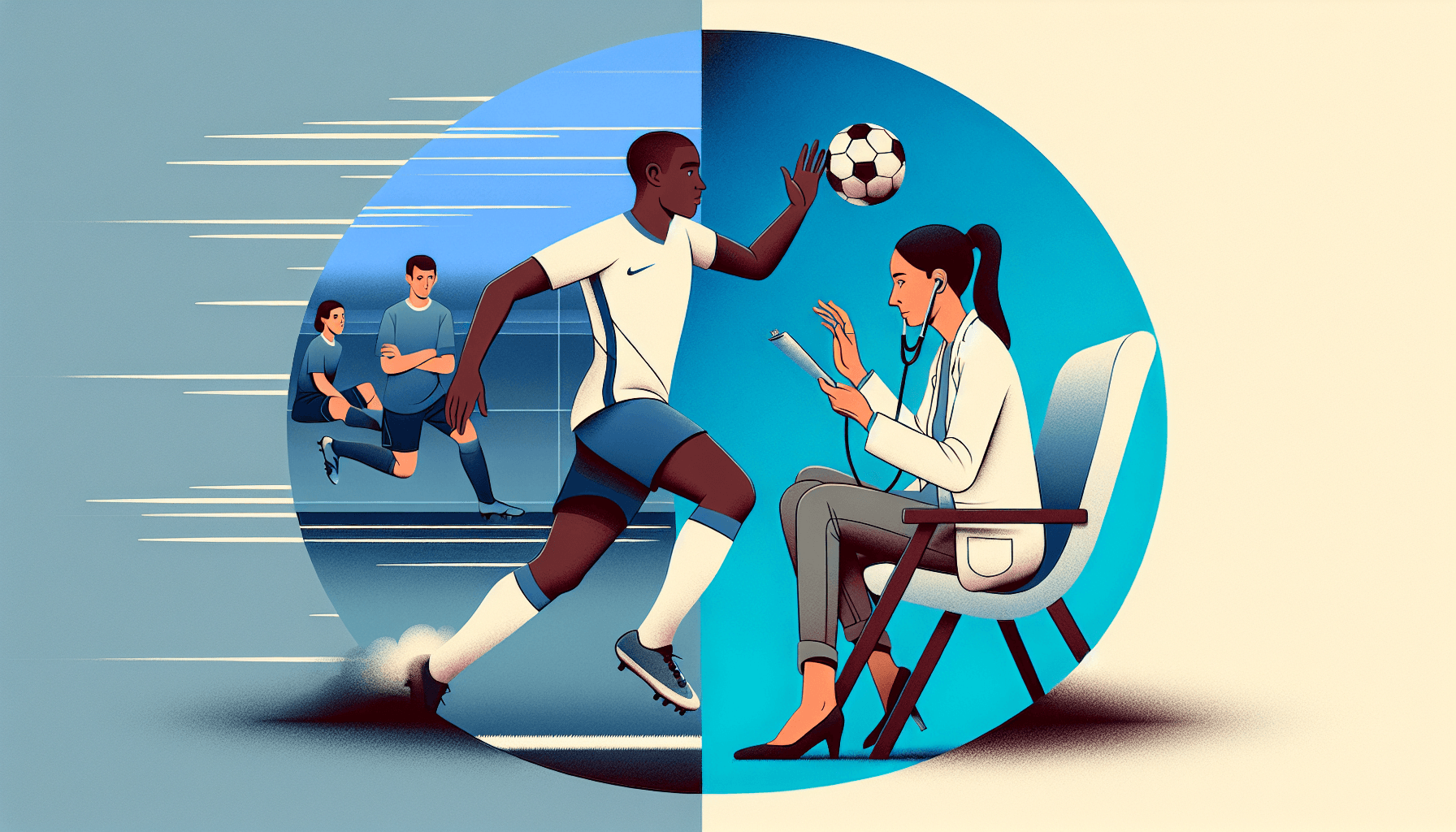Sports medicine is a field that focuses on the prevention, diagnosis, treatment, and rehabilitation of injuries related to sports and physical activities. While physical health and fitness are key components of sports medicine, it is equally important to address the mental health aspects of athletes. The mental well-being of athletes plays a vital role in their overall performance and success in sports. In this article, we will explore the importance of mental health in sports medicine and how it can positively impact athletes.
The Mind-Body Connection
The mind and body are intricately connected, and this connection is particularly evident in the world of sports. Physical injuries can have a profound impact on an athlete’s mental state, and vice versa. For example, a major injury can lead to feelings of frustration, anger, and even depression. On the other hand, mental stress and anxiety can manifest in physical symptoms such as muscle tension and decreased coordination.
Sports medicine practitioners recognize the importance of addressing both the physical and mental aspects of an athlete’s well-being. By taking a holistic approach to treatment, they can help athletes recover from injuries more effectively and improve their overall performance.
Enhanced Performance
Mental health plays a crucial role in an athlete’s performance. When an athlete is mentally resilient, they are better able to cope with the pressures and challenges of sports. They can maintain focus, make quick decisions, and adapt to changing situations on the field. Mental resilience also helps athletes bounce back from setbacks and perform at their best consistently.
A sports medicine team that includes mental health professionals can provide athletes with the necessary tools to build mental resilience. Techniques such as visualization, goal-setting, and mindfulness can help athletes cultivate a strong mental game. By working on their mental health, athletes can enhance their performance and unleash their full potential.
Stress Management and Injury Prevention
Stress is a common factor in the world of sports. Athletes often face high-pressure situations, intense training schedules, and the demands of competition. If not managed properly, this stress can have detrimental effects on an athlete’s mental and physical health.
Stress and anxiety can lead to poor decision-making, increased risk of injury, and slower recovery times. By prioritizing mental health, sports medicine professionals can help athletes develop effective stress management techniques. This can include strategies such as relaxation exercises, deep breathing, and cognitive-behavioral therapy.
Moreover, mental health support can contribute to injury prevention. When athletes are in a good mental state, they are more likely to listen to their bodies, address early warning signs of injury, and take necessary precautions. By addressing mental health, sports medicine practitioners can help athletes reduce the risk of injuries and maintain their physical well-being.
Rehabilitation and Recovery
Injuries are a common occurrence in sports, and the road to recovery can be challenging both physically and mentally. Physiotherapy and rehabilitation programs play a crucial role in restoring an athlete’s physical functions, but mental well-being is equally important during this process.
Mental health professionals can provide athletes with the necessary support and coping mechanisms during their rehabilitation journey. They can help athletes navigate through the emotional and psychological challenges that come with the recovery process, such as frustration, fear, and uncertainty. By addressing mental health during rehabilitation, athletes can achieve better outcomes and return to their sports with confidence.
A Team Approach
The collaboration between sports medicine professionals, including doctors, physiotherapists, and mental health experts, is essential in ensuring comprehensive care for athletes. By working together, they can provide a holistic approach that addresses both the physical and mental aspects of an athlete’s well-being.
The sports medicine team can create an environment that promotes mental well-being and supports athletes in all areas of their sports performance. They can integrate mental health assessments into routine check-ups, provide mental resilience training, and offer ongoing support throughout an athlete’s journey. By adopting this team approach, sports medicine practitioners can contribute to the long-term success and well-being of athletes.
Conclusion
In conclusion, mental health is an integral part of sports medicine. It is crucial to address the mental well-being of athletes alongside their physical health. By recognizing the mind-body connection, enhancing performance, managing stress, preventing injuries, and supporting rehabilitation, sports medicine professionals can contribute to the overall success and well-being of athletes. The incorporation of mental health support in sports medicine is essential for optimizing athletic performance and ensuring the long-term physical and mental health of athletes.

